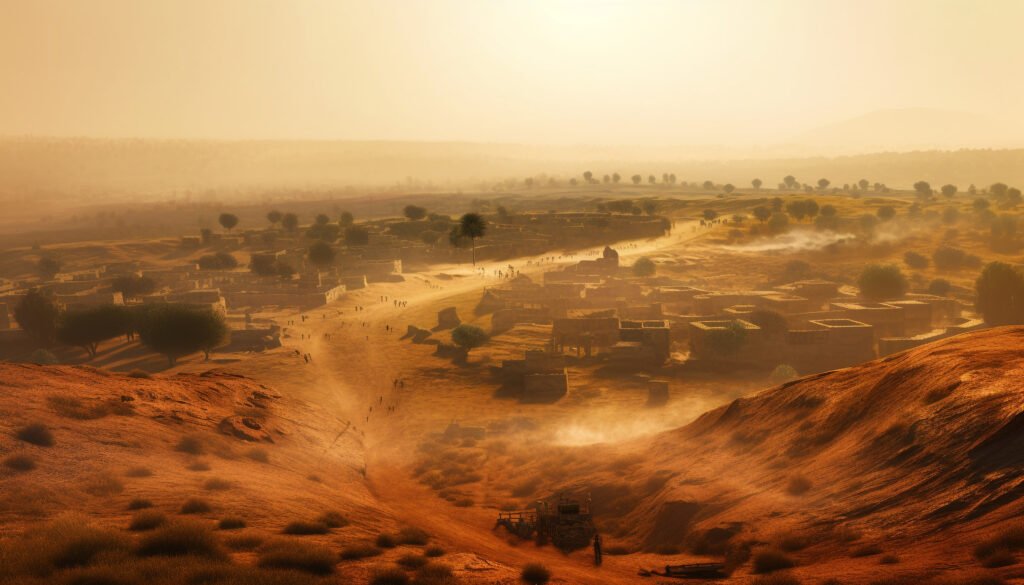
Introduction
The Sahel region, characterized by vast desert landscapes and arid climates, has long been associated with challenges such as drought, food insecurity, and political instability. However, beneath the surface lies an untapped treasure trove of mineral wealth that has the potential to reshape the economic landscape of these nations. From precious metals to valuable minerals, the Sahel possesses abundant resources that, if harnessed responsibly, could drive economic growth and prosperity. Yet, the paradox remains: Why do these countries, endowed with such riches, continue to struggle as some of the world’s poorest nations?
Untapped Mineral Wealth: A Hidden Opportunity
The Sahel region encompasses a wealth of natural resources, including gold, uranium, phosphate, oil, and natural gas. Gold, in particular, is abundant across countries like Mali, Niger, and Burkina Faso, making the region a significant player in the global gold market. The untapped potential of these resources could have far-reaching implications for job creation, revenue generation, and infrastructure development. However, numerous factors have hindered their exploitation and translation into economic prosperity.
Challenges Hindering Resource Exploitation
Several interrelated challenges contribute to the paradox of poverty amidst mineral abundance in the Sahel:
Lack of Infrastructure: Insufficient infrastructure, including transportation and energy facilities, limits the ability to extract, process, and export minerals efficiently. This lack of infrastructure deters potential investors and hampers the development of a vibrant mining sector.
Political Instability: Ongoing conflicts, political instability, and security concerns have deterred foreign investment and disrupted resource exploration and exploitation. Unstable governance environments make it challenging to establish long-term partnerships with international corporations.
Limited Technical Expertise: Developing a thriving mining industry requires specialized technical expertise and knowledge. Many Sahelian nations lack the skilled workforce needed to effectively extract, process, and manage mineral resources.
Lack of Investment: Insufficient investment in the mineral sector further impedes progress. Limited financial resources, coupled with global market fluctuations, make it difficult for these nations to make the necessary investments in infrastructure and technology.
Environmental Concerns and Sustainability
The exploitation of mineral resources must also be approached with environmental sustainability in mind. Irresponsible mining practices can have adverse effects on the environment, leading to habitat destruction, pollution, and long-term ecosystem damage. Striking a balance between economic development and environmental protection is crucial to ensure that the benefits of mineral wealth are reaped without compromising the region’s delicate ecosystems.
The Role of Corruption
Corruption has played a significant role in hindering the conversion of mineral wealth into economic prosperity. Mismanagement of revenues from resource extraction, lack of transparency in contracts, and illicit financial flows have all contributed to the diversion of potential economic gains away from the local population.
International Collaboration and Responsible Investment
To address the paradox of poverty amidst abundant mineral wealth, a holistic approach is necessary. International collaboration, responsible investment, and capacity building are key components of unlocking the economic potential of the Sahel. Partnering with reputable international organizations and corporations can help develop the technical expertise and financial resources required to responsibly harness these resources.
Conclusion: Navigating the Path Ahead
The Sahel stands at a crossroads, facing both immense challenges and unprecedented opportunities. The region’s mineral wealth could be a catalyst for economic growth, poverty reduction, and sustainable development. However, achieving this vision requires addressing political instability, investing in infrastructure, promoting transparency, and fostering responsible resource management. By doing so, the Sahel has the potential to transform its untapped mineral wealth into a source of prosperity that benefits both current and future generations. As the world continues to evolve, the Sahel’s mineral wealth could become a symbol of hope, demonstrating that sustainable resource utilization can uplift nations from poverty and contribute to global economic progress.
Hashtags:
#SahelMineralWealth #UntappedResources #PovertyParadox #EconomicDevelopment #ResourceAbundance #PovertyAlleviation #GeopoliticalDynamics #EconomicPotential #SustainableGrowth #ResourceExploitation #NaturalResourceManagement #EconomicDisparity #ResourceRichRegion #WealthAndPoverty #EconomicProspects
